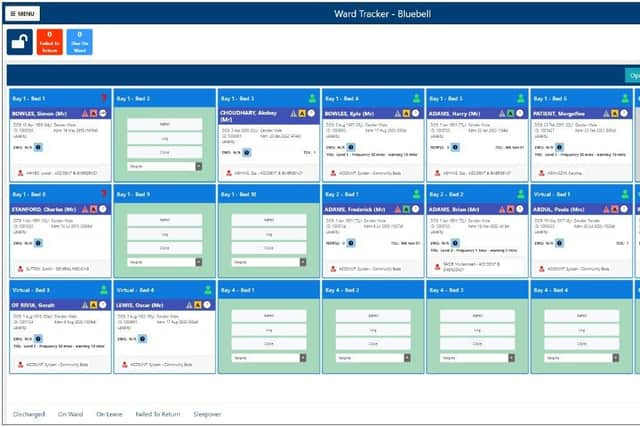Herts hospitals' bold new plan to tackle hospital waits and delayed discharge
and live on Freeview channel 276
Hertfordshire Partnership Foundation Trust has partnered with The Access Group to implement the Access Patient Flow Manager which allows real time oversight of all beds within the Trust.
Instead of paper based records, long meetings and prolonged waits for patients, the new system gives clinical staff and ward managers a clear picture of bed occupancy, patient conditions and care needs in real time in one single place.
Advertisement
Hide AdAdvertisement
Hide AdBy moving to a digital system, clinicians will have more time to focus on patient care and significantly, it will be able to highlight barriers which lead to delayed discharge.


APFM enables a live view of patients within a hospital or care setting, their condition, and resulting priority for care. This overview allows the trust to move patients accordingly; ensuring a high standard of care whilst also enabling the treatment and care of as many people as possible at any one time to help cut waiting lists and response times.
The trust has approximately 400 beds for adults, frailty care, non-frail elderly care, and mental health – as well as a number of rehab units. Post-Covid, HPFT is also utilising private beds to help with service backlog, which it is hoping APFM will help reduce.
Without the visibility of health and care data to effectively manage beds, medical staff attend several meetings a day, carry out multiple phone calls, and send hundreds of emails to gather the required information – a task that is hugely time consuming on clinicians.
Advertisement
Hide AdAdvertisement
Hide AdBy reducing the need for private beds, the money saved will be able to be used elsewhere in the trust.
Clinicians will be able to access patient data and bed information at any time, meaning staff are better informed, allowing them to plan in advance. Enhanced data insights will also give greater visibility of partner organisations, highlighting barriers around hospital discharge to improve processes and support moving patients home quickly and safely.
Delayed discharge is a significant problem for the NHS and Social Care and leads to longer waits for patients on trolleys, delayed ambulance handovers and deconditioning of patients whilst they wait unnecessarily in hospital.
“Having a single version of the truth is very important for us; one reliable record that we can all see, and we can all work from. Access Patient Flow Manager helps us achieve that for our inpatient flows and will serve as an operations centre from which we can manage the great care and outcomes we deliver for all our service users, together,” said Hakan Akozek, Director of Innovation and Transformation at HPFT.
Advertisement
Hide AdAdvertisement
Hide AdSteve Wightman, Healthcare Director at Access HSC (Health Support and Care) comments, “We are delighted to be working with Hertfordshire to roll out our Patient Flow Manager solution. The software will give better visibility of beds, minimise unnecessary long stays for patients and reduce the administration burden on hospital staff, allowing clinicians to focus on giving vital care to those who need it across Hertfordshire.”
Access will support HPFT with a phased rollout of the new software, train staff on how to use Access Patient Flow Manager and provide technical support throughout the partnership.